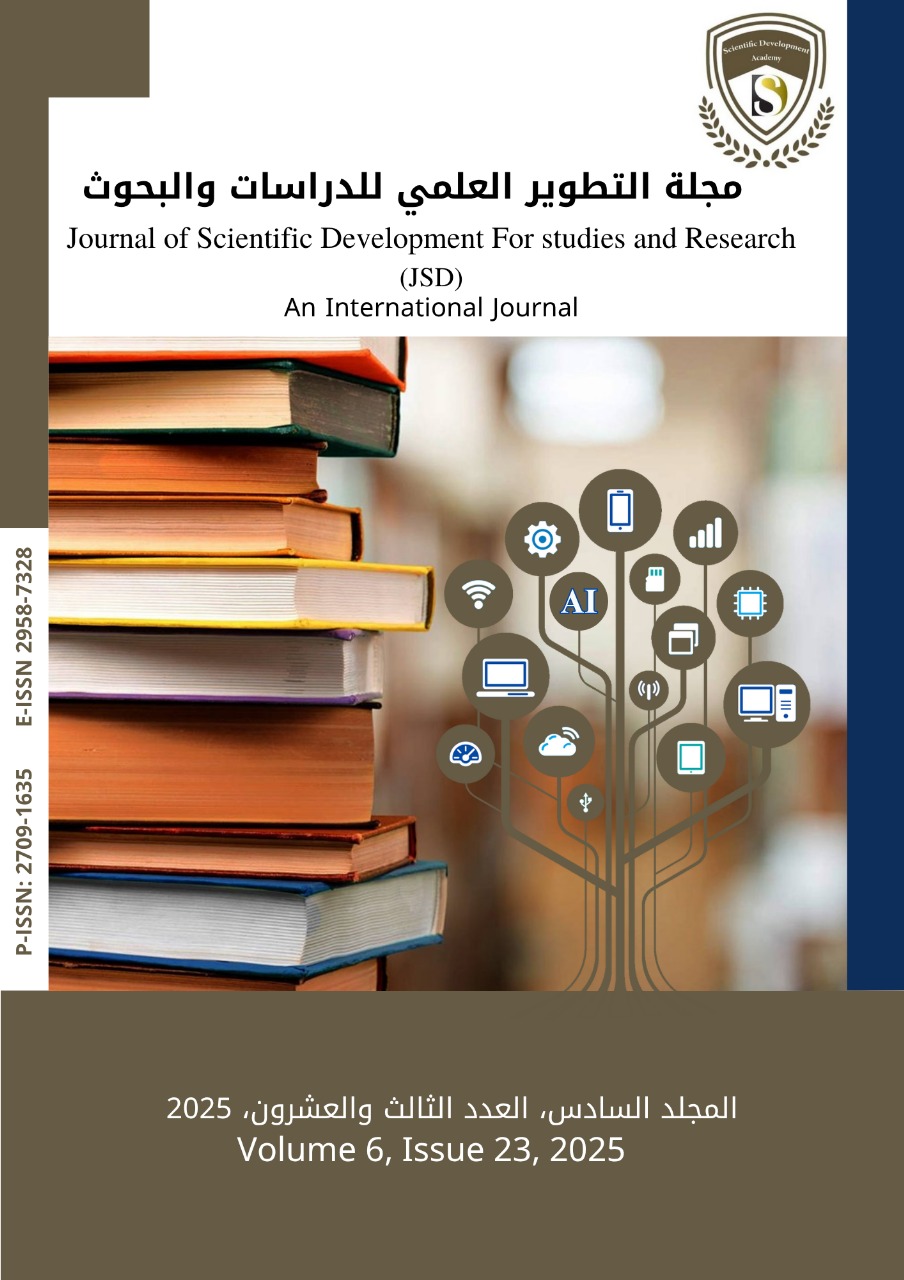تقبل استخدام تطبيقات الذكاء الاصطناعي ودوره في تطوير الموارد البشرية لدى أعضاء هيئة التدريب: دراسة تطبيقية على أحد المعاهد التدريبية بالمملكة العربية السعودية
DOI:
https://doi.org/10.61212/jsd/419الكلمات المفتاحية:
الذكاء الاصطناعي، الموارد البشرية، التدريب.، ، التطوير.الملخص
أصبح الذكاء الاصطناعي أداة رئيسية في تحسين بيئة العمل، لذا تهدف هذه الدراسة إلى دراسة مدى تقبل أعضاء هيئة التدريب لاستخدام تطبيقات الذكاء الاصطناعي، وتحليل دور هذه التطبيقات في تطوير الموارد البشرية، من خلال تحسين كفاءة التدريب، تعزيز مهارات المدربين، وتقديم حلول ذكية تدعم عملية التعلم. كما تسعى الدراسة إلى تحديد العوامل المؤثرة في تبني هذه التقنية، واستكشاف التحديات التي قد تحول دون استخدامها بفعالية في بيئات التعليم والتدريب. اعتمدت الدراسة على المنهج الوصفي التحليلي، حيث تم تصميم استبانة وزعت على مجتمع الدراسة 112 مدرباً، استُرجعت منها 62 استبانة صالحة للتحليل. تم استخدام الأساليب الإحصائية لتحليل البيانات، وقياس مدى استخدام الذكاء الاصطناعي في الحياة اليومية وفي السياق التدريبي، إلى جانب تقييم العوامل الديموغرافية المؤثرة، مثل العمر، التخصص، والدرجة العلمية. وقد أظهرت النتائج أن هناك تقبلاً ملحوظًا لاستخدام الذكاء الاصطناعي في الحياة اليومية، مقابل استخدام أقل في العملية التدريبية. كما أبرزت الدراسة عدة تحديات، من أبرزها: ضعف المهارات التقنية، الخوف من فقدان الوظائف، الحواجز اللغوية، ومخاوف تتعلق بالخصوصية والدقة. أوصت الدراسة بضرورة تعزيز البنية التحتية التقنية، تقديم برامج تدريبية لتمكين المدربين من استخدام الذكاء الاصطناعي، وتطوير سياسات تنظيمية تشجع على دمج هذه التقنيات في بيئات التدريب، مما يؤدي إلى تحقيق تطويراً مستداماً للموارد البشرية إضافة إلى رفع جودة العملية التدريبية.
المراجع
التنزيلات
منشور
إصدار
القسم
الرخصة
الحقوق الفكرية (c) 2025 مجلة التطوير العلمي للدراسات والبحوث JSD

هذا العمل مرخص بموجب Creative Commons Attribution 4.0 International License.






























